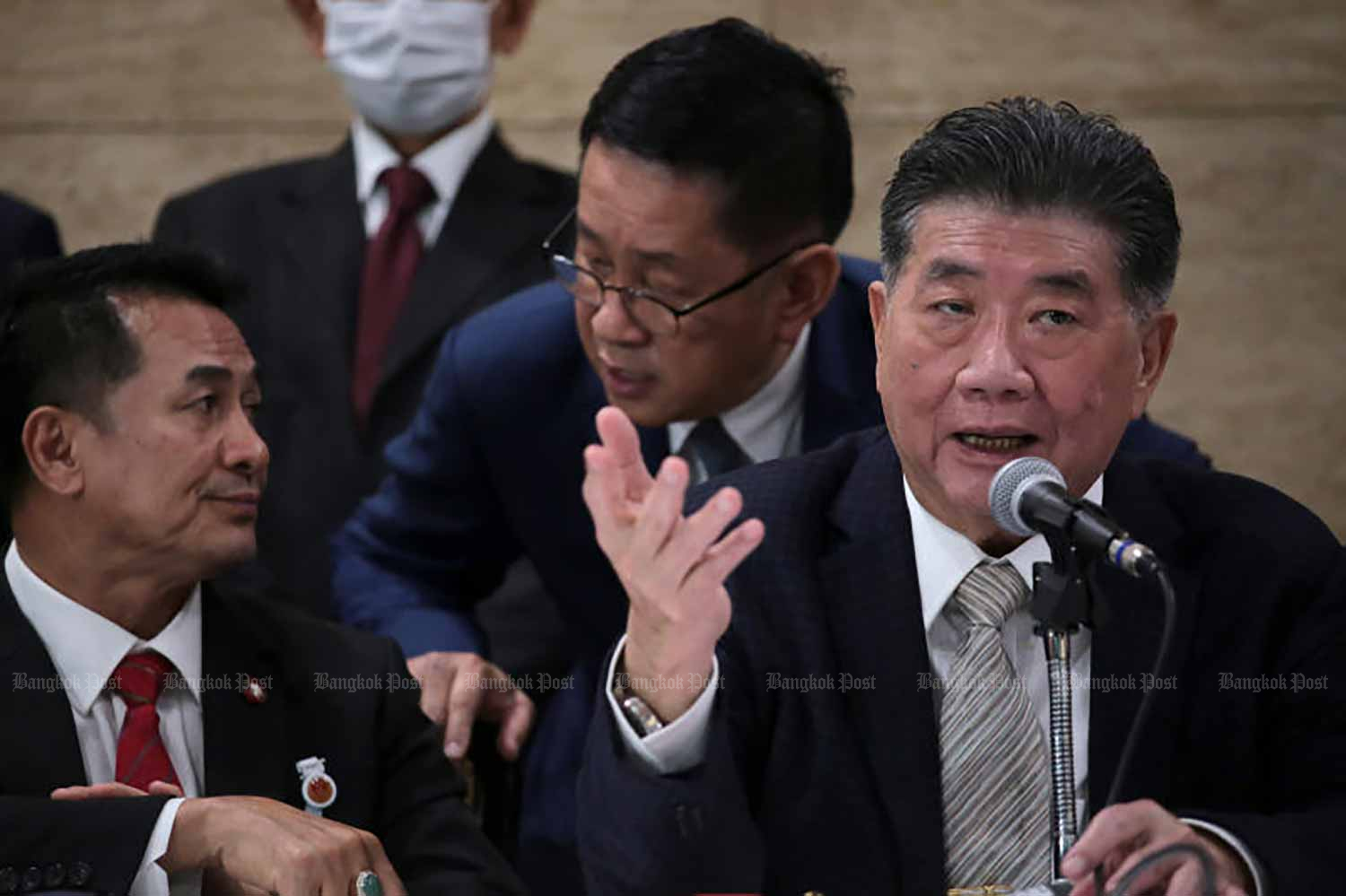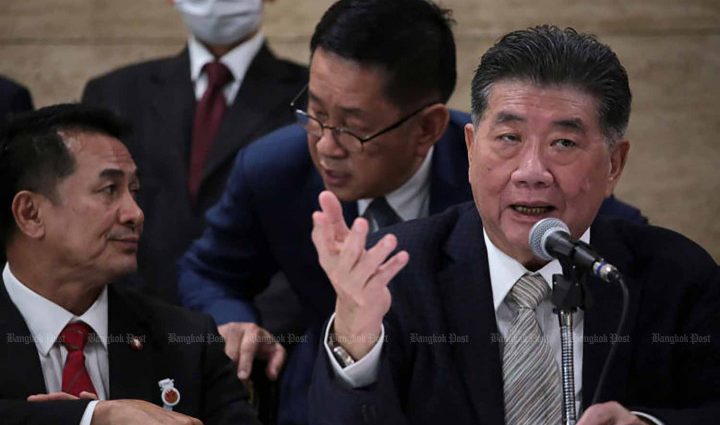‘Uncle’ parties likely to join govt

Critics have slammed the Pheu Thai Party over its attempt to bring the so-called uncle parties into its coalition, accusing the party of betraying the people.
They said the make-up of the Pheu Thai-led coalition government will be no different from the outgoing government as only Pheu Thai will serve as a new addition.
Pheu Thai is coming under heavy criticism for reneging on its word before the May 14 election that it would not work with the “uncle” parties, referring to those linked to military leaders involved in the 2014 coup.
The “uncles” refer to Prime Minister Prayut Chan-o-cha, the former United Thai Nation Party (UTN) chief adviser and its prime ministerial candidate, and Deputy Prime Minister Prawit Wongsuwon, the leader and prime ministerial candidate of the Palang Pracharath Party (PPRP).
According to a source, Pheu Thai has now sealed a deal with the PPRP in which the PPRP has agreed to vote for Pheu Thai’s prime ministerial candidate in exchange for slices of the cabinet quota cake.
However, the UTN has not yet confirmed whether it will join the coalition. If the UTN also agrees to join, the Pheu Thai-led coalition will boast 315 MPs, the source said.
Pheu Thai has 141 MPs while Bhumjaithai has 71 MPs, the PPRP 40, the UTN 36, Chartthaipattana 10, Prachachat 9, Pheu Thai Ruam Palang 2, Chartpattanakla 2, with Seri Ruam Thai Party, Plung Sungkom Mai, Thongthee Thai and the New Democracy Party all having one MP each.
Wanwichit Boonprong, a political science lecturer at Rangsit University, said the PPRP and the UTN are Pheu Thai’s old foes.
”If they work together, people may suspect that they do so for the sake of their own interests regardless of how their supporters feel,” Mr Wanwichit said.
”If they join hands, they will find it hard to work together. Pheu Thai cannot expect to have a free hand in handling economic affairs as it wishes because the two parties will want to have a share.
“It will be difficult for Pheu Thai to implement several of its policies. As a result of its decision to bring the uncle parties into the coalition, votes for Pheu Thai are likely to decline at the next election,” Mr Wanwichit said.
Olarn Thinbangtieo, a political science lecturer at Burapha University, echoed the view, saying Pheu Thai had previously said it would not work with the UTN and the PRRP.
If it goes back on its word, it can expect to see people take to the streets, and if demonstrations persist, the economy will be affected, he said.
Wiroj Lakkhanaadisorn, a Move Forward Party (MFP) list-MP, tweeted that the configuration of the Pheu-Thai led coalition will be no different from that of the outgoing government if the UTN and PPRP join it.
“Another party comes as a new addition and only serves to provide support for a dictatorship,” Mr Wiroj tweeted, apparently referring to Pheu Thai.
Amarat Chokepamitkul, a key figure of the MFP, also posted on Facebook: “The people will not get any new government. It is only the previous government, with Pheu Thai added to it.”
Ekachai Hongkangwan, a red-shirt activist, said red-shirt supporters have made sacrifices to oppose illegitimate powers, and called on Pheu Thai not to betray them by working with parties that support a dictatorship.
Former red-shirt guard chief Sombat Thongyoi posted on Facebook that no matter how red-shirt groups protest, this could not stop Pheu Thai from forming a coalition government including the PPPR and UTN.
Meanwhile, Pol Maj Gen Jirasant Kaewsaeng-ek, deputy commissioner of the Metropolitan Police Bureau (MPB), on Saturday warned road users to avoid Sunday’s “car mob” rally.
A convoy of cars will start from BTS Mor Chit station and proceed to the headquarters of the Bhumjaithai Party and Pheu Thai, he said.

